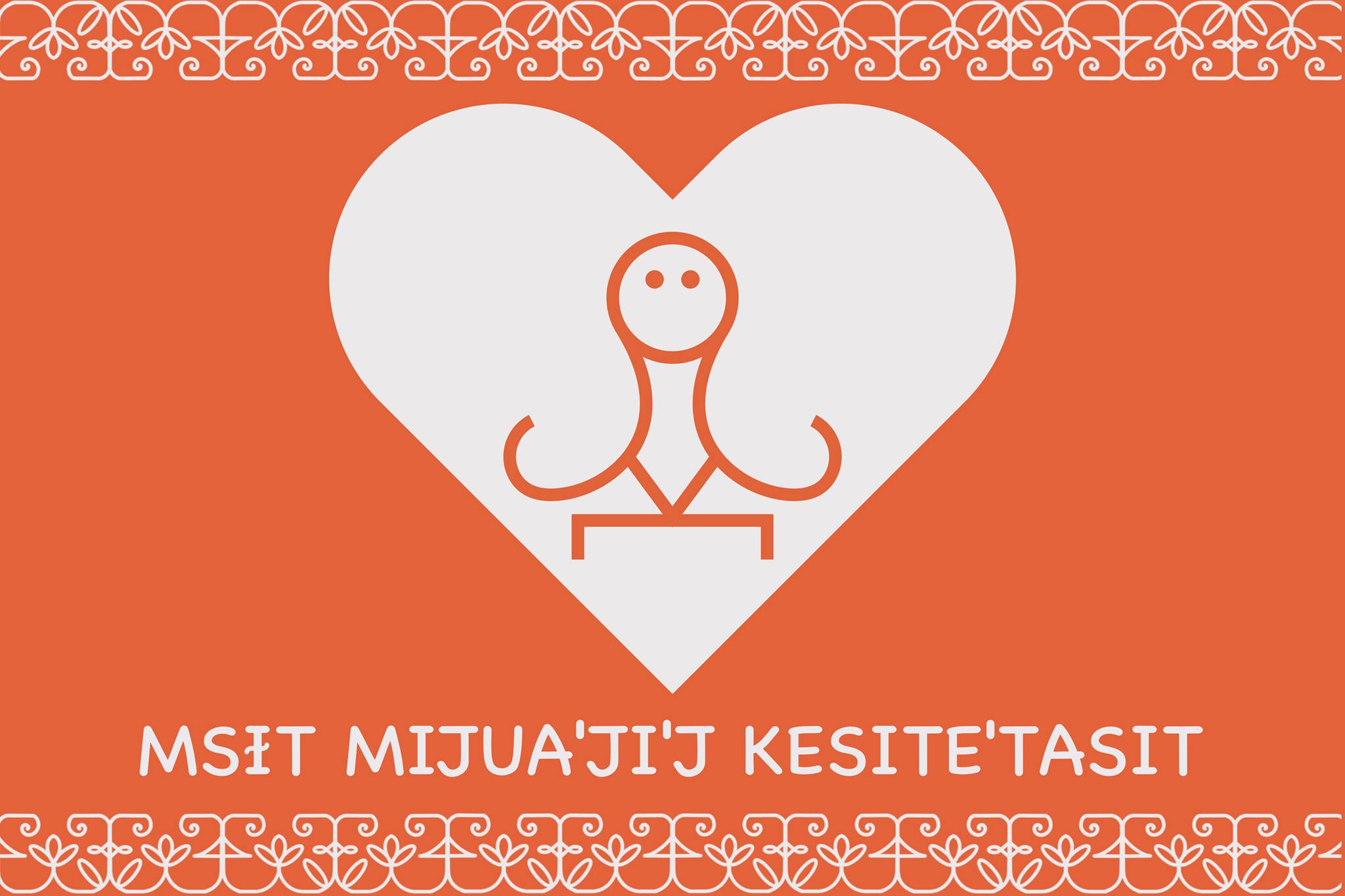
Msīt Mijua’ji’j Kesite’tasit
Flag design by Paulina Meader
Every Child Is Cherished
Original artwork (petroglyph and double curve) by J.R. Isadore
Translation by Jane Meader
Additional consultation by Rebecca Cope, Raven Augustine, and Barbara Low
National Truth & Reconciliation Week 2023 and its importance to Nova Scotia social workers
As we prepare to mark the National Day for Truth & Reconciliation this weekend, it’s essential to revisit the theme for this year: Honouring Survivors. This theme underscores the importance of acknowledging the historical atrocities committed against Indigenous peoples and the resilience of those who survived. As social workers in Nova Scotia, recognizing, appreciating, and learning from these experiences is critical in our commitment to fostering an equitable and just society.
Honouring Survivors is a potent reminder of the strength, resilience, and courage of Indigenous individuals who endured the horrific experiences of residential schools and other forms of systemic oppression. The theme emphasizes the need for us all to acknowledge the past, learn from it, and take steps towards healing and reconciliation.
Survivors’ stories are not just narratives of pain and suffering but also powerful accounts of resistance, resilience, and cultural preservation. They provide invaluable insights into the injustices that Indigenous communities have faced and continue to face. These narratives illuminate the path towards reconciliation and serve as a guiding light for social workers striving to foster healing and justice.
The role of social workers in reconciliation
As social workers, we have a unique role in supporting reconciliation efforts, given our profession’s role in the genocide of indigenous peoples in Nova Scotia. We are on the front lines, offering support to individuals and communities grappling with the lasting effects of generational trauma caused by colonial policies. We have the opportunity — and responsibility — to incorporate the principles of truth and reconciliation into our practice. Part of this responsibility involves educating ourselves about the history and impact of residential schools and other forms of systemic racism, and understanding this from an intersectional lens. This understanding enables us to provide culturally sensitive and informed care to Indigenous clients, and advocate for policies that promote equity and justice.
Professional development (PD) opportunities that focus on reconciliation are invaluable resources for social workers. These opportunities allow us to deepen our understanding of Indigenous history, culture, and experiences. They equip us with the knowledge and skills to provide culturally competent care and support reconciliation efforts.
Archived PD opportunities, such as webinars, workshops, and seminars, can be found below. These resources count towards our ongoing professional development equirements and contribute to our personal and professional growth.
The National Day for Truth & Reconciliation is a critical time for reflection, learning, and action for social workers in Nova Scotia. By honouring survivors, we acknowledge the past, learn from it, and commit ourselves to fostering a future where every individual is treated with dignity, respect, and justice. Let’s leverage this week and the available learning opportunities to deepen our commitment to reconciliation and enhance our practice.
Selected professional development
- Upcoming NSCSW events
- Recorded NSCSW webinars
- Social work in Mi’kma’ki, series with Michelle Peters, PP
- Mi’kmaw culture & heritage, series with Gerald Gloade
- Canadian Association of Social Workers webinars
- Bridging Worlds: Navigating Settler-Indigenous Relations, Allyship, and the Road to Reconciliation and Decolonization
- Keynote by Sheila North: In Recognition of the National Day of Awareness of Missing and Murdered Indigenous Women and Girls
- Indigenous Approaches to Child Welfare
- The Power of Ceremony: Indigenous Contemplative Practices, Neurodecolonization, and Indigenous Mindfulness
- Honouring Jordan’s Principle: Putting Kids First
- Abolition and Transformative Justice: Re-Imagining Social Work
- Defunding the Police: Implications for Social Work
- Decolonizing Social Work Practice, Education, and Research
- Every Child Matters: Transforming Grief and Sorrow into Determination and Action
- Wanted: Moral Courage in Social Work
- Indigenous Perspectives & Social Work series
- Readings
- Documentaries





